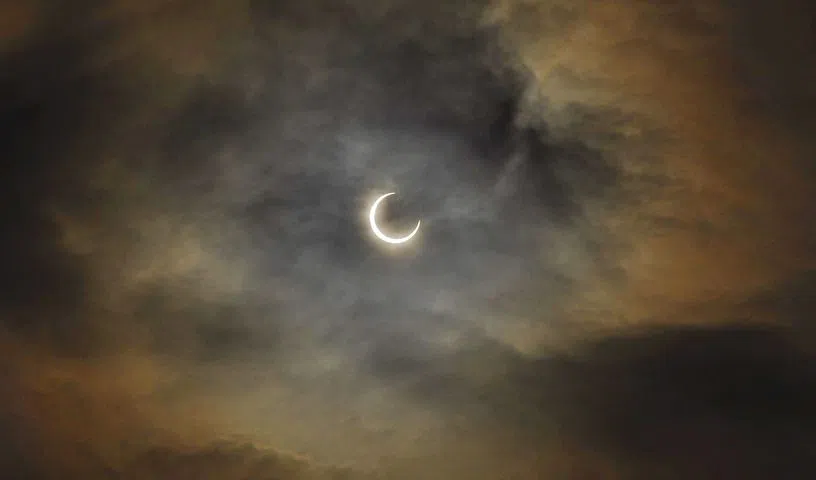All you need to know about first solar eclipse of 2023

Here’s everything you need to know about today’s hybrid solar eclipse.

New Delhi: The world is going to witness a rare astronomical event on Thursday – a hybrid solar eclipse. It takes place when a total eclipse and the annular solar eclipse occur at the same time.
An eclipse occurs when the moon passes between the Earth and the Sun, casting a shadow on the Earth’s surface.
Here’s everything you need to know about today’s hybrid solar eclipse.
1. What is a hybrid solar eclipse?
A hybrid solar eclipse is a rare type of eclipse that occurs only a few times per century. As per NASA, hybrid eclipses shift from annular to total due to our planet’s curve.
2. How it is different from a total eclipse?
A total eclipse occurs when the moon completely obscures the sun, whereas an annular eclipse occurs when the moon obscures the sun but appears smaller, leaving the outline of a solar ring and the rare hybrid eclipse takes place when both occur at the same time.
3. Where will it be visible?
According to NASA, on April 20, skywatchers in Australia and parts of southeast Asia will be able to view a hybrid solar eclipse as it passes over the Indian and Pacific Oceans. Unfortunately, the hybrid solar eclipse will not be visible in India.
4. Time to Watch the solar eclipse?
In Western Australia the eclipse will be visible from 10:29 pm to 10:35 pm EDT on April 19 (2:29 to 2:35 GMT, April 20), in East Timor from 11:19 pm to 11:22 pm EDT on April 19 (3:19 to 3:22 GMT, April 20) and in Indonesia from 11:23 pm to 11:58 pm EDT on April 19 (3:23 to 3:58 GMT, April 20).
5. When will the next solar eclipse be visible?
The next Eclipse (Partial) will be visible in India on August 2, 2027 (not visible in Odisha) and the next annular solar eclipse will occur in 2031.







